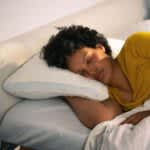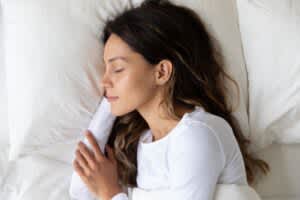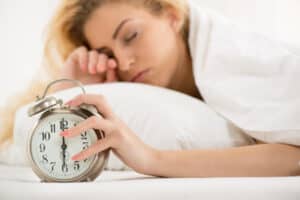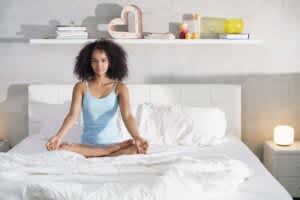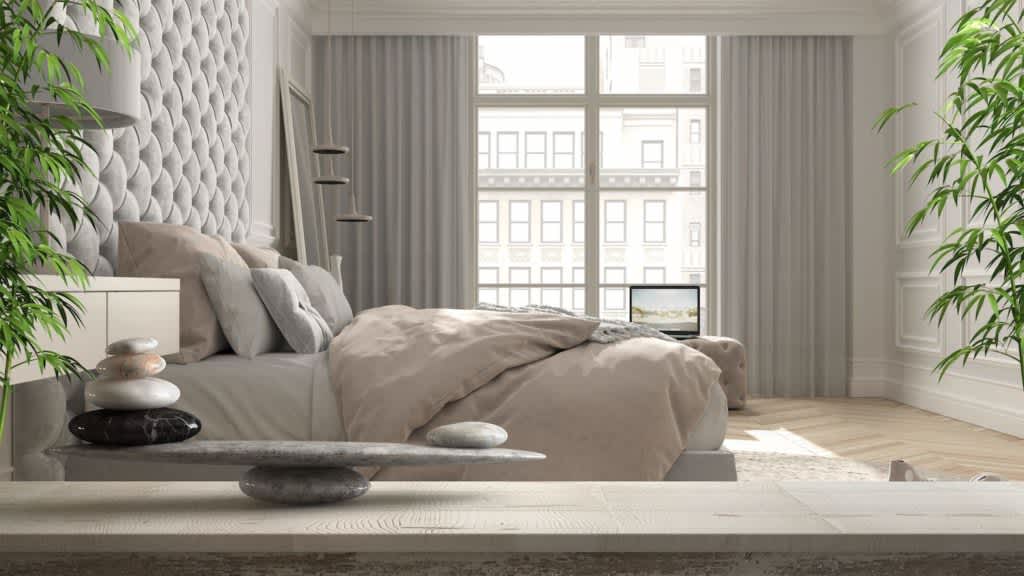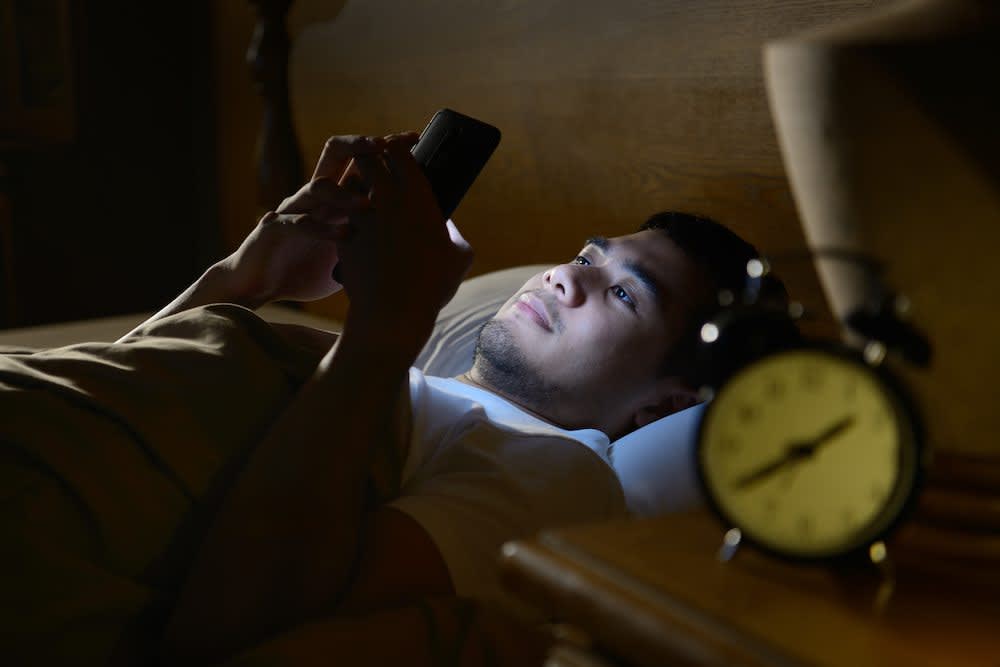Next time you are picking out what to wear to bed, consider adding socks. Many people anecdotally claim that sleeping in socks helps them sleep better and scientific research suggests they might be onto something. Learn about how socks may impact sleep and which socks to choose if you want to try this potentially sleep-boosting method.
Key Takeaways
- Sleeping with socks on may support the body’s natural temperature regulation during sleep.
- A person experiencing sleep troubles due to cold feet may find socks beneficial.
- Do not wear compression socks to bed unless instructed by your doctor.
Our Pick for Best Sleep Socks

The White Company Cashmere Bed Socks
The White Company Cashmere Bed Socks are naturally breathable and moisture-wicking to help hot sleepers stay comfortable. Cashmere is also naturally soft and easy on the skin. You can choose from three colors.
Can Sleeping With Socks on Help People Fall Asleep Faster?
Research suggests that wearing socks to bed can help people not only fall asleep faster, but sleep longer and wake up fewer times throughout the night. One study found that young men wearing socks fell asleep 7.5 minutes faster, slept 32 minutes longer, and woke up 7.5 times less often than those not wearing socks. In another study, adults fell asleep faster when wearing socks, either on their own or after a warm foot bath.
More research is needed on socks and sleep since few studies have been conducted. However, researchers have known for decades that warming a person’s feet at bedtime helps them sleep better due to the unique relationship between body temperature and sleep.
Body Temperature and Sleep
A person’s sleep cycle and core body temperature are both managed by their circadian rhythms, or internal clocks that regulate changes in specific bodily functions across a 24-hour cycle. Research shows that these two circadian rhythms affect one another and that sleep is associated with a drop in core body temperature, or the temperature of internal organs.
Core body temperature differs from skin temperature. Perhaps surprisingly, warming a person’s skin temperature can decrease their core body temperature by expanding blood vessels near the skin and allowing heat to escape. This effect on core body temperature is likely the reason that wearing socks to bed or immersing your feet in warm water before bed promotes better sleep. The subsequent drop in core body temperature signals that it is time for sleep.
The air temperature of a room, along with the local temperature within a person’s bed, also affects sleep quality. Results vary when it comes to the ideal room temperature for sleep, but experts claim it lies between 65 and 68 degrees Fahrenheit. Since clothing and bedding greatly impact a person’s skin and body temperature throughout the night, the ideal room temperature for sleep likely depends on a person’s choices in pajamas and bedding.
Optimizing your sleep space for temperature control can be beneficial if you sleep hot or cold. One potential solution is the Eight Sleep Pod 4, a mattress cover that you can set to any temperature between 55 and 110 degrees. The cover encases your mattress with a zip closure, and can be programmed using Eight Sleep’s companion smartphone app.
Can Socks Help With Sleep Problems?
More research is needed to definitively determine whether or not wearing socks to bed can help with sleep problems. Warming a person’s feet has been associated with better sleep in multiple studies, but most of these use foot baths rather than socks to warm the feet. Out of two studies that focused on socks, one excluded people with sleep problems and the other found that socks only helped those without insomnia fall asleep faster.
Still, future research may determine that wearing socks to bed reduces sleep problems. Research shows people with colder hands and feet take longer to fall asleep. This could possibly be due to the hands and feet not warming. It is important for feet to warm because that dilates blood vessels and allows heat to escape, reducing core body temperature. If a person is experiencing sleep troubles due to cold feet, socks might help.
Wearing socks to bed is not a substitute for treatment for insomnia or other sleep problems. If you believe you have a sleep disorder or are having difficulties falling asleep, consider consulting a medical professional.
Is It Bad to Sleep With Socks On?
Wearing socks to sleep comes with very few risks, other than discomfort for those that prefer the feeling of being barefoot. Be sure to wear socks that are loose, and do not wear compression socks to bed unless directed by a doctor or other medical professional.
What Socks Are Best to Sleep In?
Any socks that are not too tight and feel comfortable are likely good socks for you to sleep in. One study found that when wearing wool sleepwear, people fell asleep about 14 minutes faster than they did when wearing cotton and 9 minutes faster than when wearing polyester. Wool socks may provide a similar effect, but more research is needed.

How Are Socks Part of Sleep Hygiene?
Sleep hygiene refers to the collection of habits you engage in that promote sleep, including avoiding electronics before bed, reducing room temperature, and other activities that help you wind down. If wearing socks to bed at night seems to help you fall asleep faster or stay asleep longer, you may want to include putting on socks as part of your bedtime routine.
References
The Sleep Doctor Forum: Real Experiences, Real Connections
Continue the discussion on the Sleep Doctor Forum. Connect with experts and fellow forum members on CPAP, sleep apnea, and all things sleep. A priceless resource that’s free to join.












